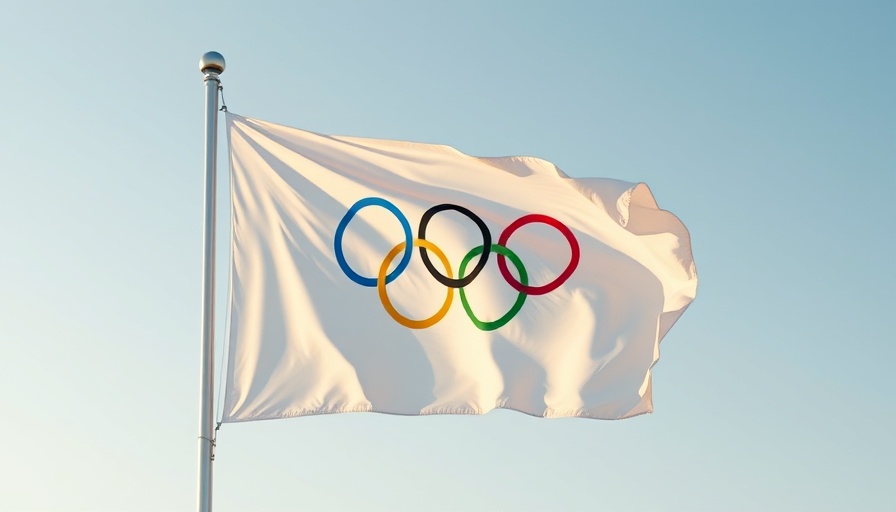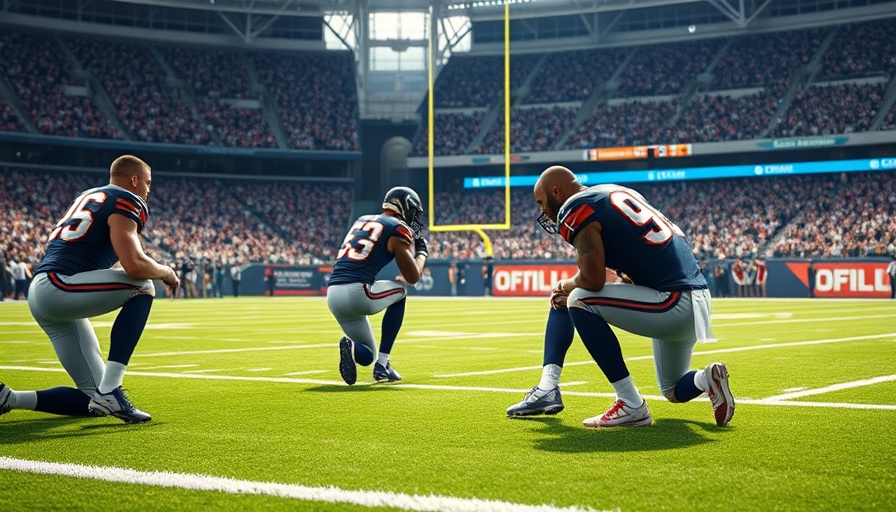
The New Game Changer: Flag Football in the Olympics
The potential inclusion of flag football in the Olympic Games has stirred excitement among sports enthusiasts and athletes alike. Set to make its debut in 2028 during the Los Angeles Olympics, flag football represents a modern twist on a classic game. As NFL owners weigh their support for player participation, the dialogue surrounding this development could redefine the landscape of this beloved sport.
NFL Owners' Perspectives: A Strategic Move or an Ethical Dilemma?
While the NFL is known for its traditional, collision-heavy gameplay, the idea of endorsing flag football participation raises questions regarding player safety and brand image. NFL owners are at a crossroads—balancing the excitement of showcasing their athletes on a world stage against the potential backlash about player injuries. This dialogue also points to deeper issues regarding the NFL’s responsibility for player welfare, especially given ongoing discussions about concussions and their long-term impact.
Historical Context: The Evolution of Football
Football has always been about evolution, from its rugged early days to the polished, complex strategies of today’s game. Historically, flag football emerged as a safer alternative promoting inclusivity. It's played with fewer injuries, making it an attractive option for national teams wishing to highlight athleticism without the inherent risks of contact football. This showcases an ongoing trend within sports to prioritize athlete safety while still engaging audiences.
Flag Football: A Growing International Phenomenon
As flag football continues to gain popularity across the globe, the Olympic platform could serve as a catalyst for its expansion. Countries like Mexico, the United Kingdom, and Japan already have established leagues and competitive teams. Introducing flag football to the Olympics would not merely elevate its status but could potentially foster new talent and boost international competition.
Social Connection: Why Global Recognition Matters
The conversation around flag football's inclusion in the Olympics transcends just the sport—it captures a societal shift towards inclusivity and diversity in athletics. It opens the door for athletes from different backgrounds to showcase their skills on an international platform, promoting unity and cultural exchange through sports.
Future of Flag Football in the Olympics: Predictions and Opportunities
If the NFL backs the participation of its players, we could see a wave of athletes vying for Olympic spots, eager to represent their countries on this esteemed podium. The inclusion may encourage youth participation worldwide, promoting not just athletics but camaraderie among nations. Additionally, it could lead to opportunities for professional leagues to develop ties with Olympic programs, boosting visibility and financial support.
Decisions You Can Make: Mark Your Calendars!
As fans, it's essential to engage with this evolution in the sport. Whether advocating for inclusion by discussing it with friends or supporting it through fandom and viewership, your voice can contribute to a larger narrative. Mark your calendars for the 2028 Olympics, as the debut of flag football may just provide a refreshing chapter in the ever-evolving story of sports.
The potential endorsement of NFL players participating in flag football could open new avenues not just for the sport, but for athletic identity on the global stage. As this conversation unfolds, it may be time for football enthusiasts to rethink how they view the game and what it stands for in a world that increasingly values player safety, diversity, and global connection.
Don't just watch from the sidelines—start a discussion about what flag football's Olympic entry could mean for the sport’s future!
 Add Row
Add Row  Add
Add 




Write A Comment